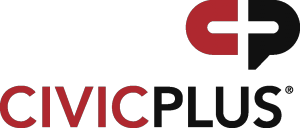7 tips for choosing a local government content management system
There are 7 factors to consider when choosing a content management system for your website. Learn what you need to keep your digitally-minded citizens engaged.
Today’s citizens have high expectations. They want total flexibility to access local news, information, resources, and tools at any time of the day or night, from any Internet-enabled device. If you need a new content management system (CMS) but don’t know where to begin, you should know that there are seven vital factors when choosing a modern solution.
- Omni-Channel Communication Flexibility
It’s no longer enough to offer a responsive website and an accompanying mobile app. Local governments must use a wide variety of communication channels to reach citizens. Such channels include mobile apps, social media, wearables, smart home devices, digital road signage, kiosks, and whatever the IoT thinks of next. Make sure you are choosing a CMS that will allow you to create content one time and publish it to multiple channels.
- Built-In API Integrations
The only way to keep pace with growing citizen demands is to ensure your software stack allows for data sharing. Make sure you are choosing a CMS with built-in application program interface (API) integrations. Such functionality will allow you to link your CMS to other key systems, such as your accounting system, calendar, email, social media platforms, and team collaboration tools, serving as a workforce multiplier, and allowing you to do more, with less.
- Intuitive Core Publishing Functionality
When reviewing CMS options, consider how easy it is to add basic content. If basic page editing requires advanced tech skills, then you can expect such a CMS to be too time-consuming and technical to offer you ideal flexibility. You need a system that allows you to do your job efficiently, and then frees up your time for other responsibilities.
- Customizable Branding
Every page of your municipal website should adhere to your brand guidelines. To accomplish this without custom designing each page, the most valuable CMS platforms will allow for the design of an overarching brand using a behind-the-scenes default style template.
5. Built-In Search Functionality
Many of your website users are going to want to search for the specific content they’re looking for, rather than scanning menu options to find information. Make sure any CMS you choose offers a reliable built-in search tool. Ask prospective vendors how frequently the CMS indexes new content within the site map, if it indexes attached files, such as documents, and how the search feature ranks results.
- Dynamic Content Capabilities
Video is one of the best ways to engage with website visitors. Your CMS must allow you to easily incorporate videos into your website, whether you are linking to an external video sharing site such as YouTube, or displaying embedded videos. Consider it a bonus if your CMS allows you to stream live video of community events as they happen.
7. Role-Based Permissions
Even if you are a one-person communication team, imagine the potential of letting individual departments edit or update their page content. Such functionality will streamline your workflows and ensure better accuracy and timeliness of new content. An ideal CMS will allow a single super-user administrator to set various permission levels based on role or department. You may want to give some department managers the ability to edit but not publish content, however, or you may want to limit their ability to update only certain pages.
If you’re ready to get started with your community’s website redesign, download our local government website redesign toolkit.
Brought to you by:





















